Kolam, creating awareness during a pandemic
Since March 2020, kolam artists and other folk masters have added another dimension to their traditional themes, reinterpreting the pandemic according to their culture and traditions.
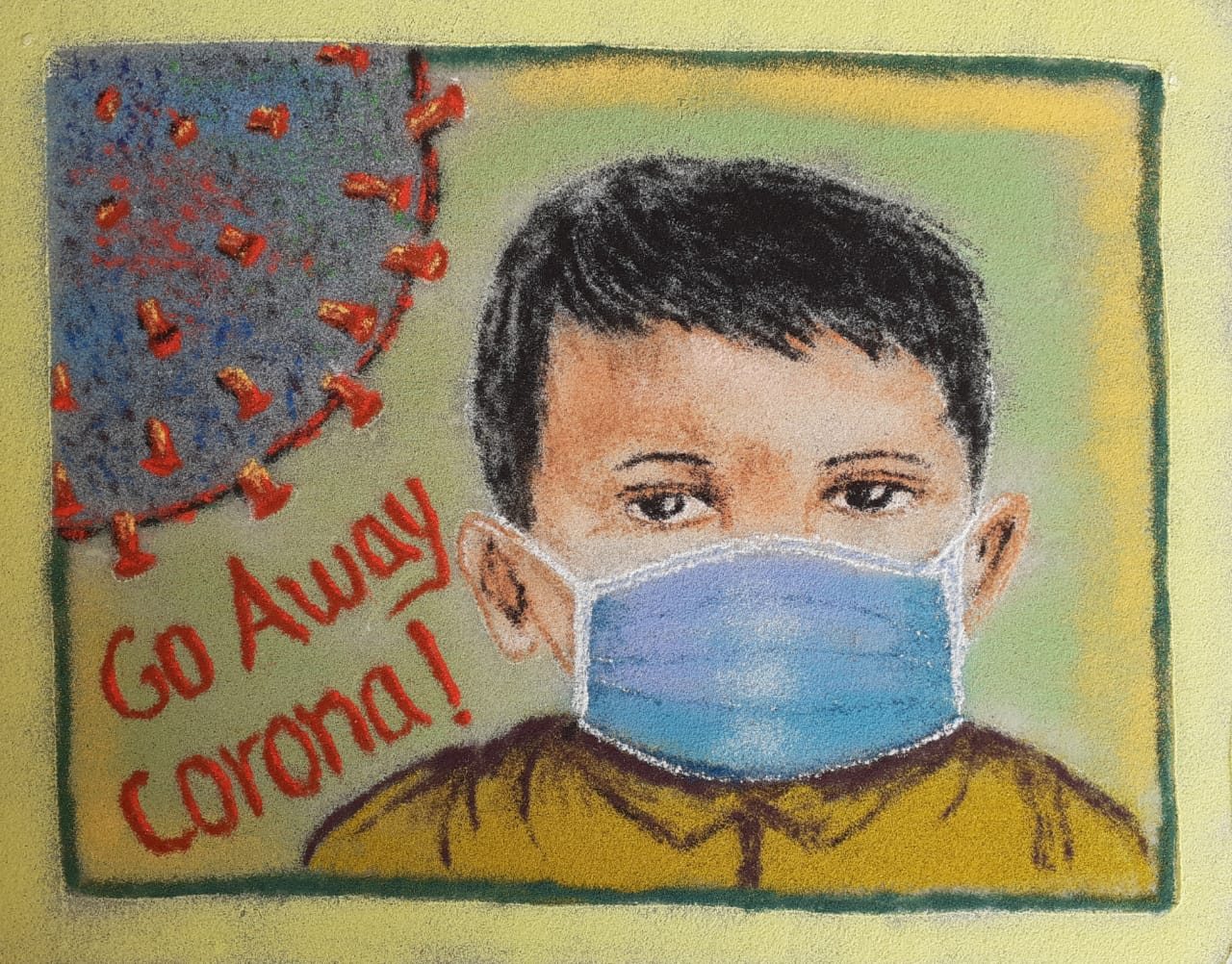
The pandemic has disrupted our lives, harming health, social and material well-being. Some of us have experienced the death of family members or friends. Economic losses have caused havoc with workers and communities. This is indeed an unprecedented time for humanity, but on a positive note, artistic inspiration has not vanished. On the contrary, there has been a renewed surge of it that has emerged either individually or in groups. Inspiration literally means to "breathe in", inhale the outside world, and convey its emotions. Since March 2020, kolam artists and other folk masters have added another dimension to their traditional themes, reinterpreting the pandemic according to their culture and traditions.
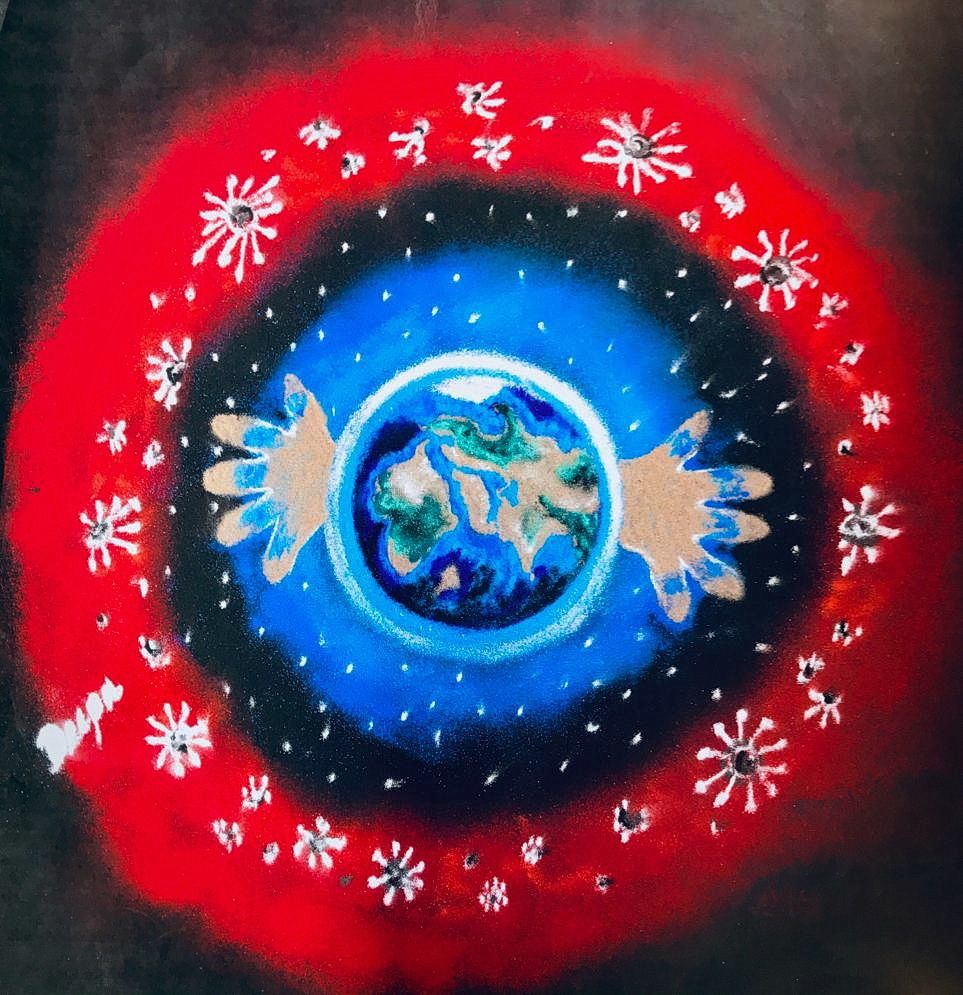
For the first time in years, I am unable to go back to India and it is through mails that the women I know have been sharing their creations with me. Traditionally, floor paintings were, and still are, related to the religious calendar. Today, the cultural as well as the economic context for the kolam has changed. As of the past few years, the kolam, which once extolled the virtues of the Indian woman is transmuting. Women are the precious link between ancestral customs and contemporary aspects of the Indian society. They travel, are aware of globalism, and therefore privy to the world's beneficial achievements or the latest ecological and economical vagaries through their graphical creations.
Kolam and rangoli in the COVID era
The borders may be sealed to contain the virus, but the international crisis has dissolved the thematic boundaries of this art form. Women in Tamil-Nadu have added to the usual designs, the three main mantras of the pandemic: wearing masks, washing hands, and physical distancing.
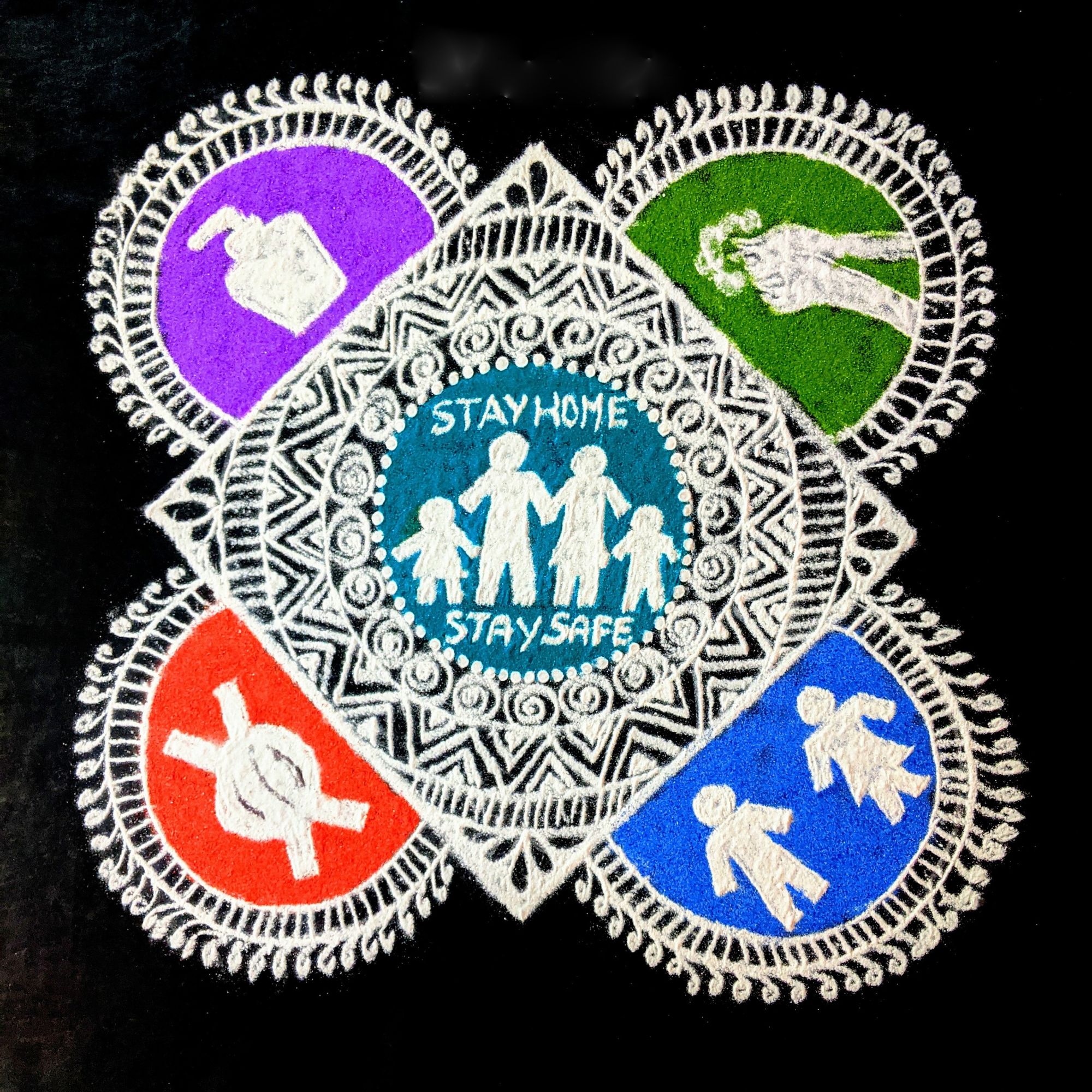
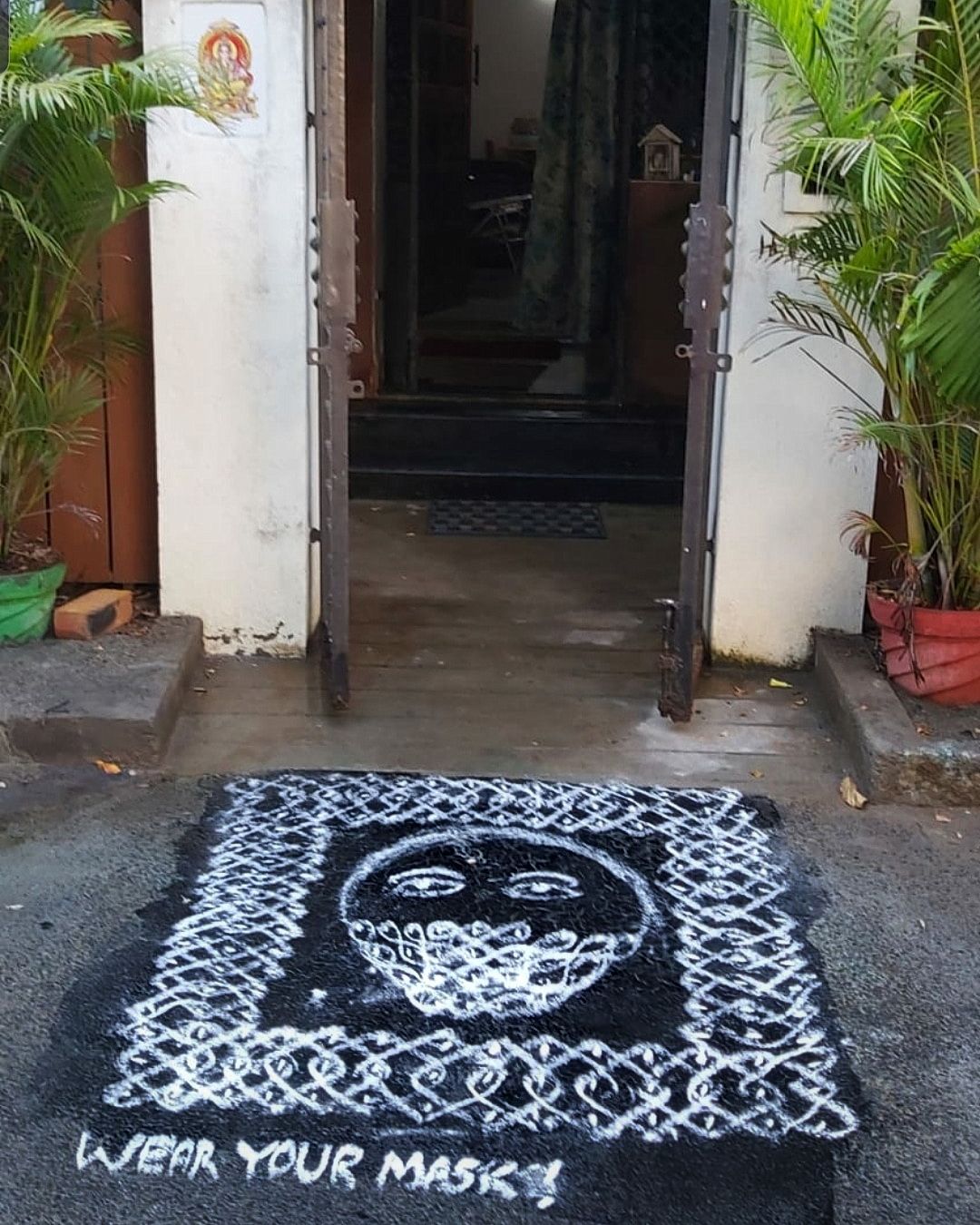
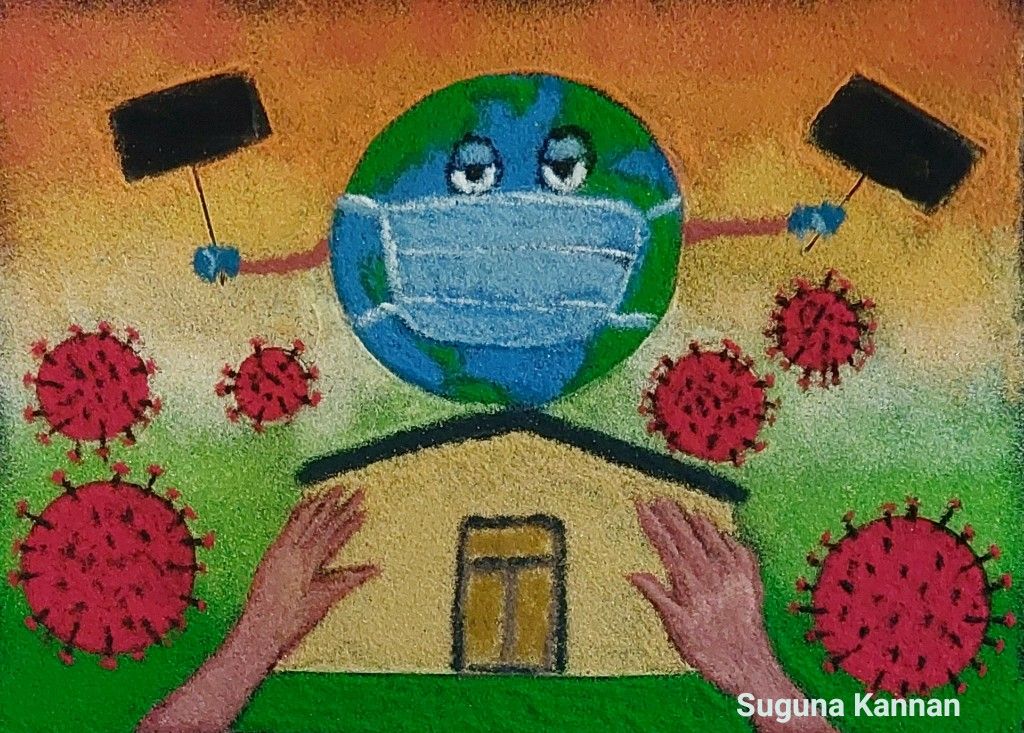
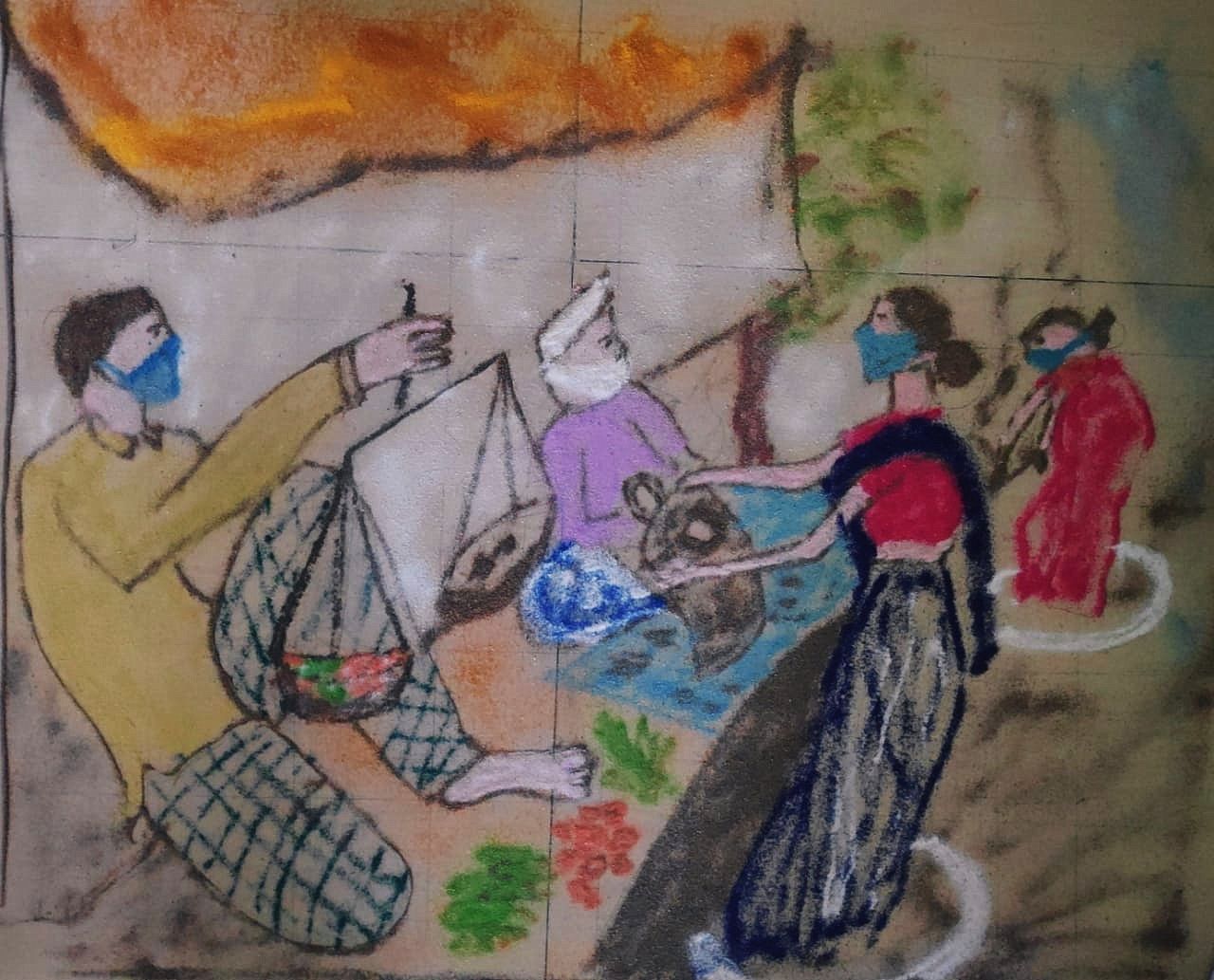
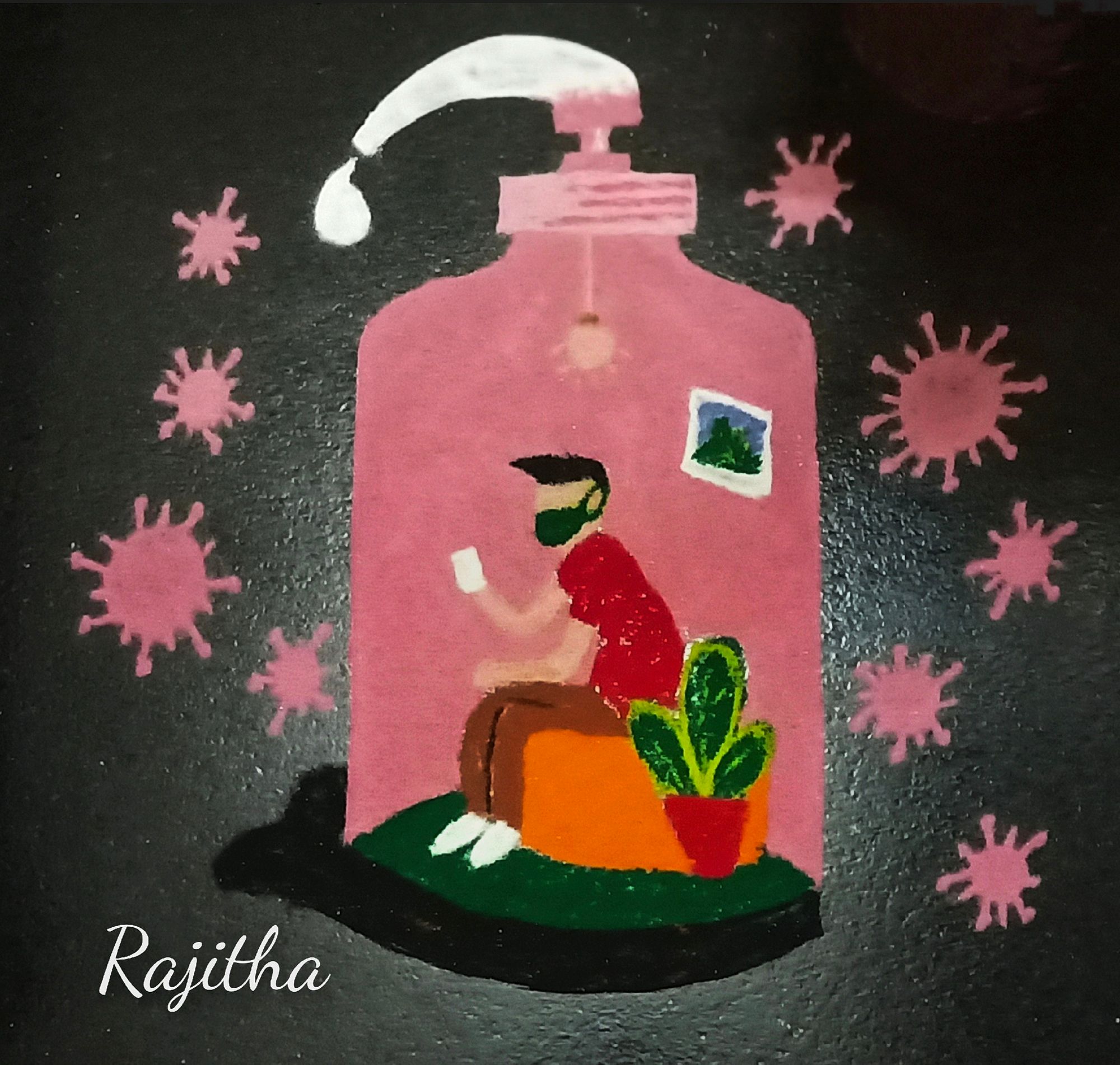
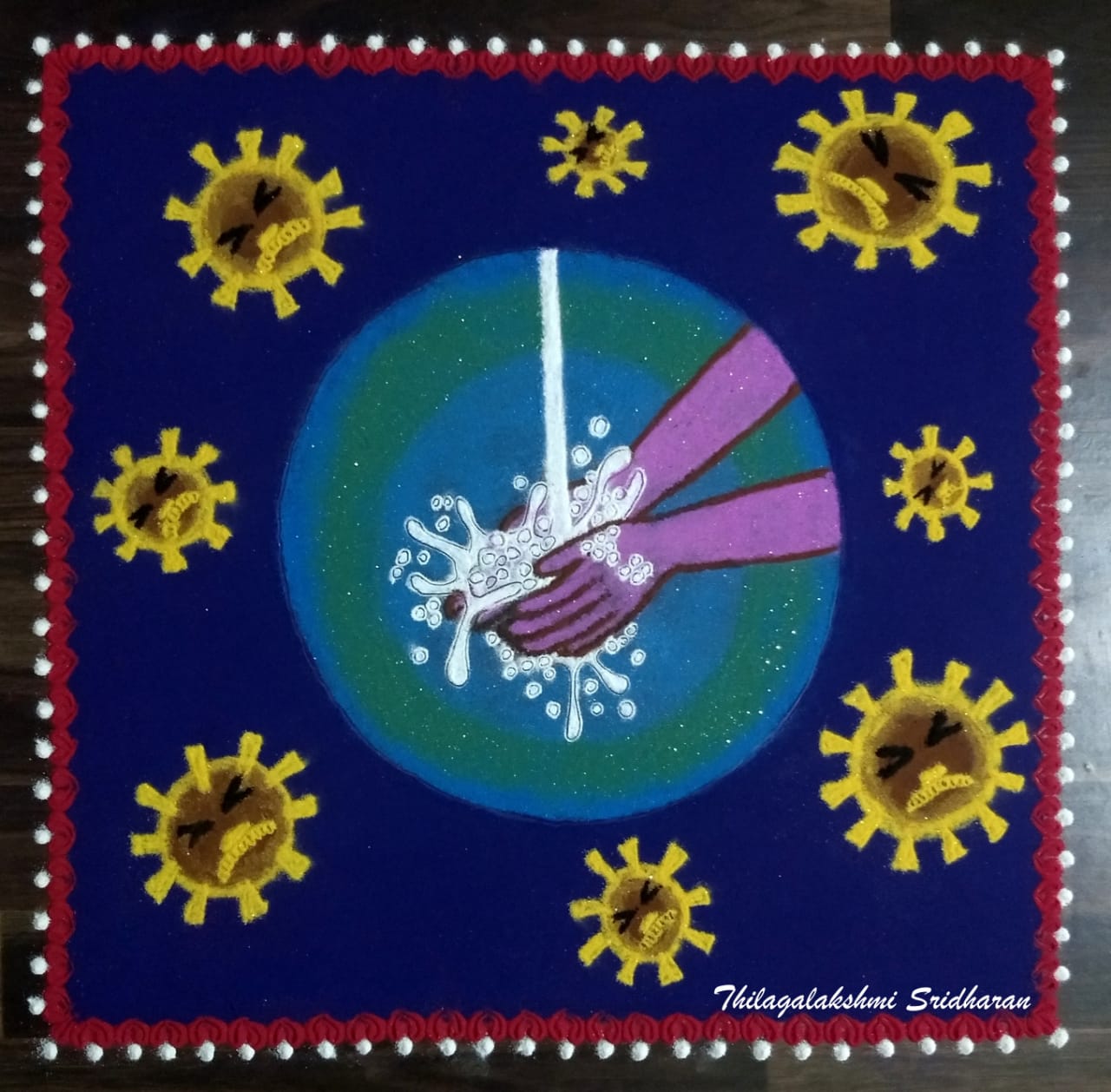
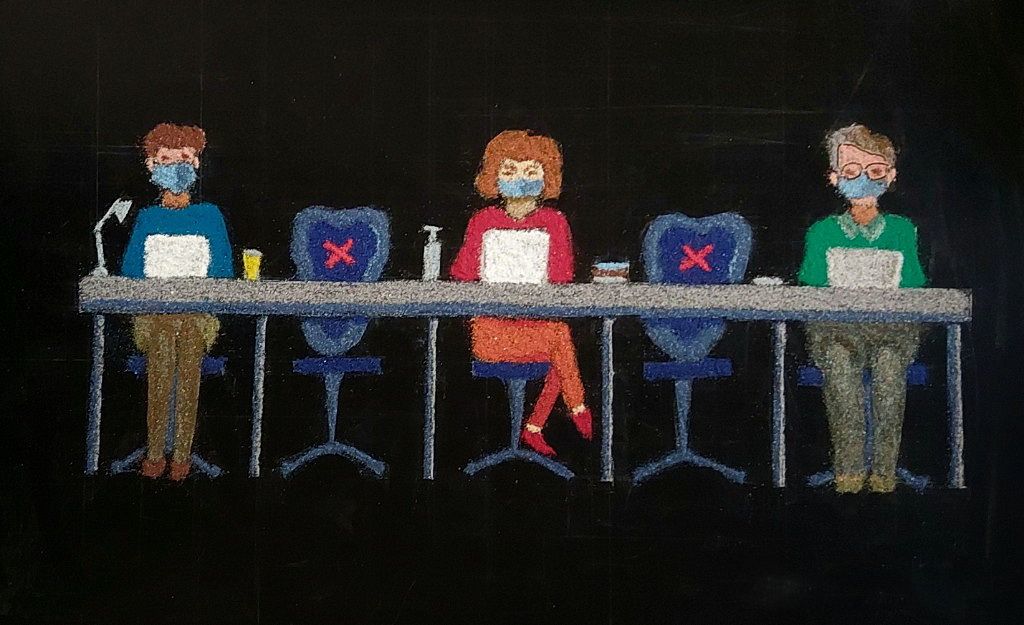
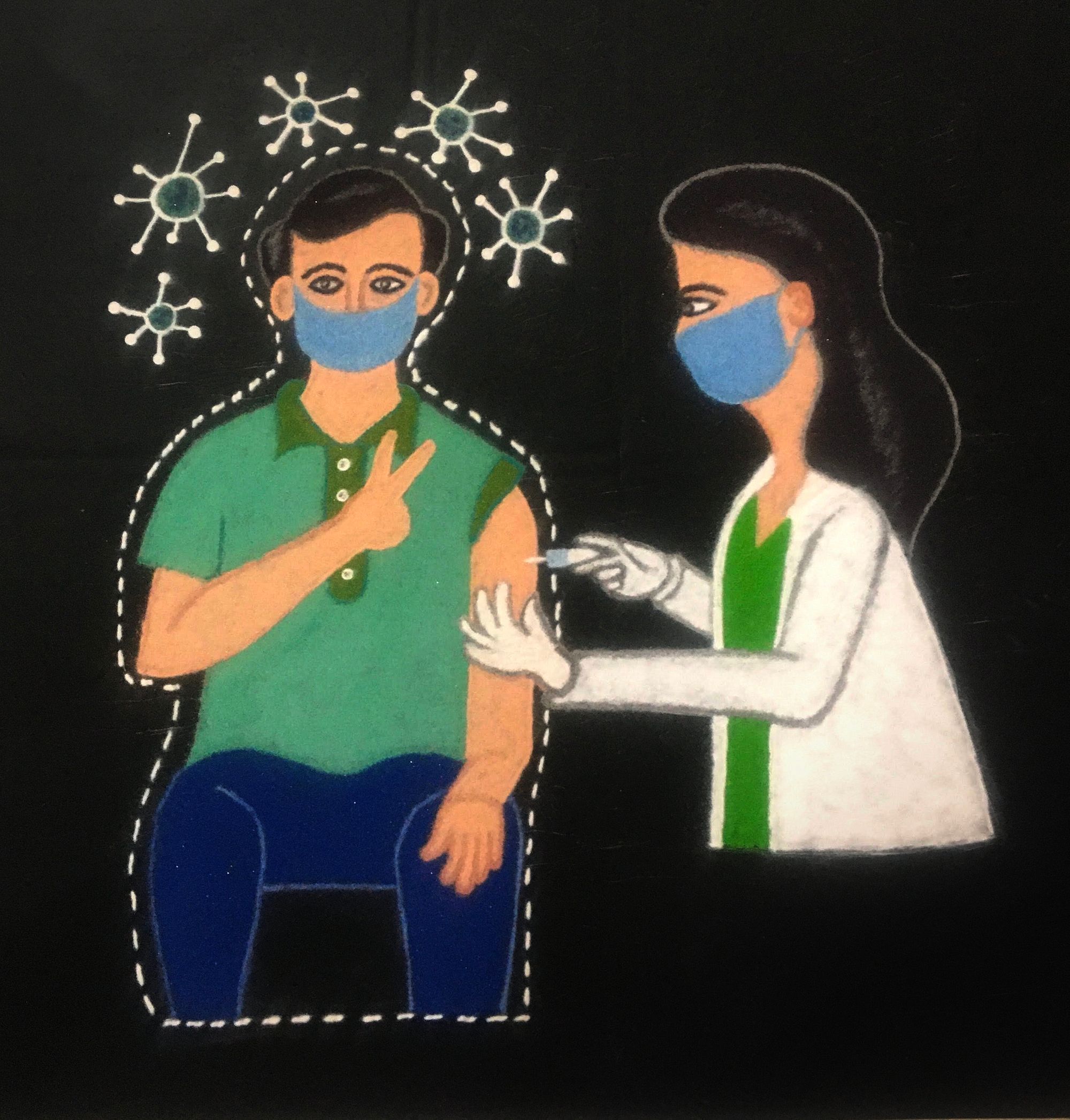
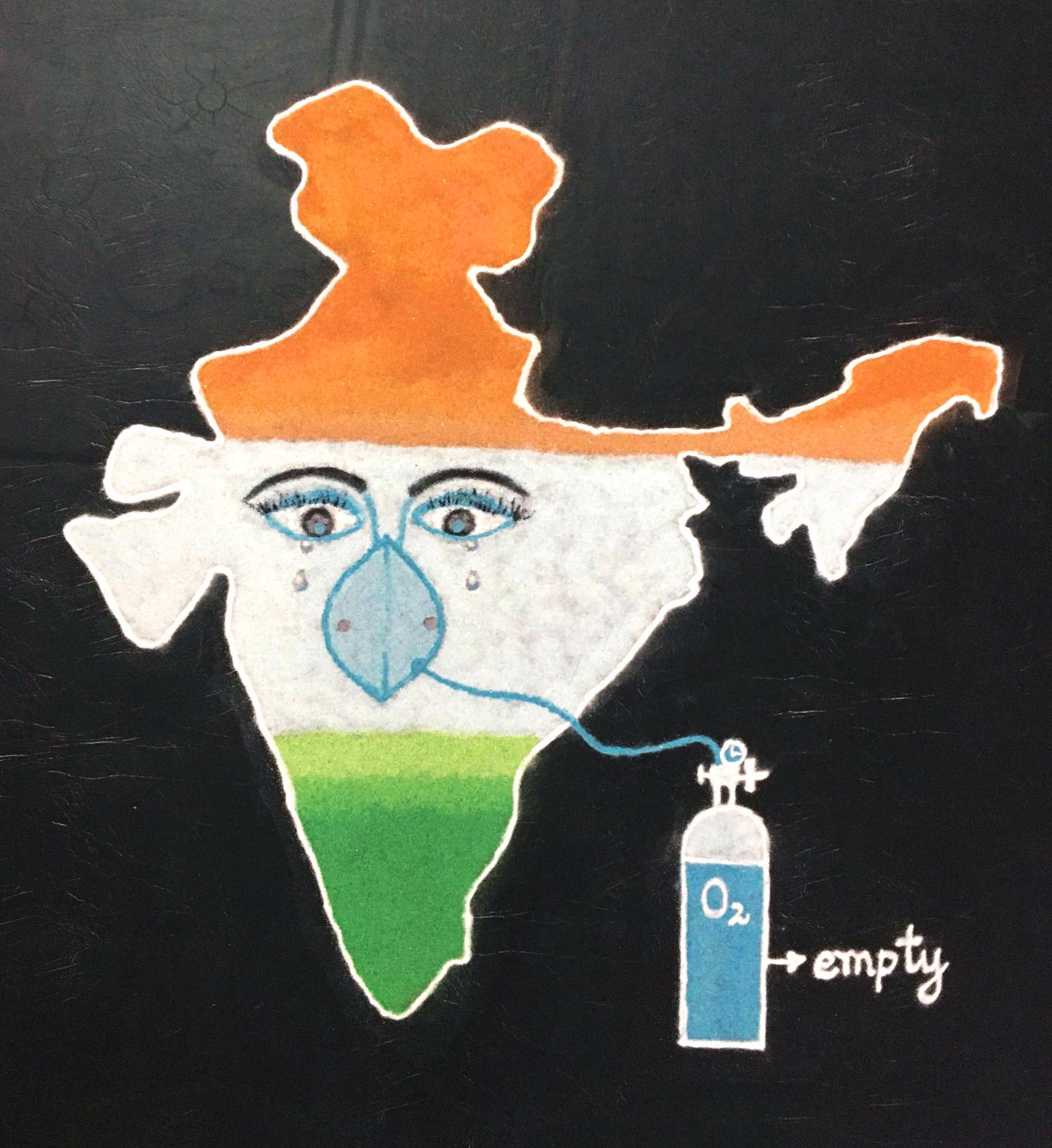
Nurses and doctors as living gods.
While people in India and around the globe are largely confined to their homes, doctors, health-care workers, and medical staff members are leading the battle from the front.
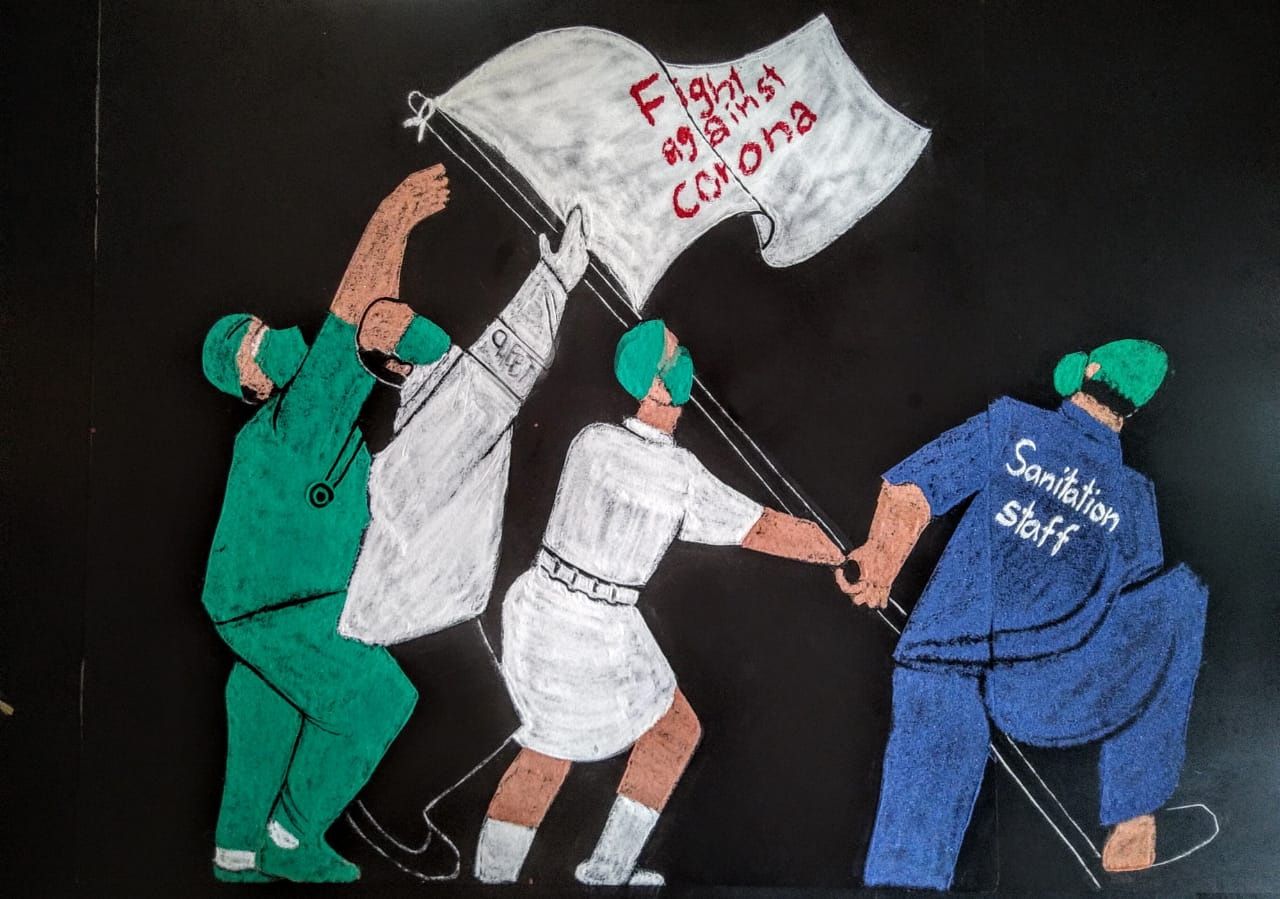
From doctors to nurses, they are seen as heroes if not as gods and goddesses. As a tribute to the medical world, images have taken various forms; some are inspired by the deeds of God Krishna lifting Govardhana mount to protect the people.
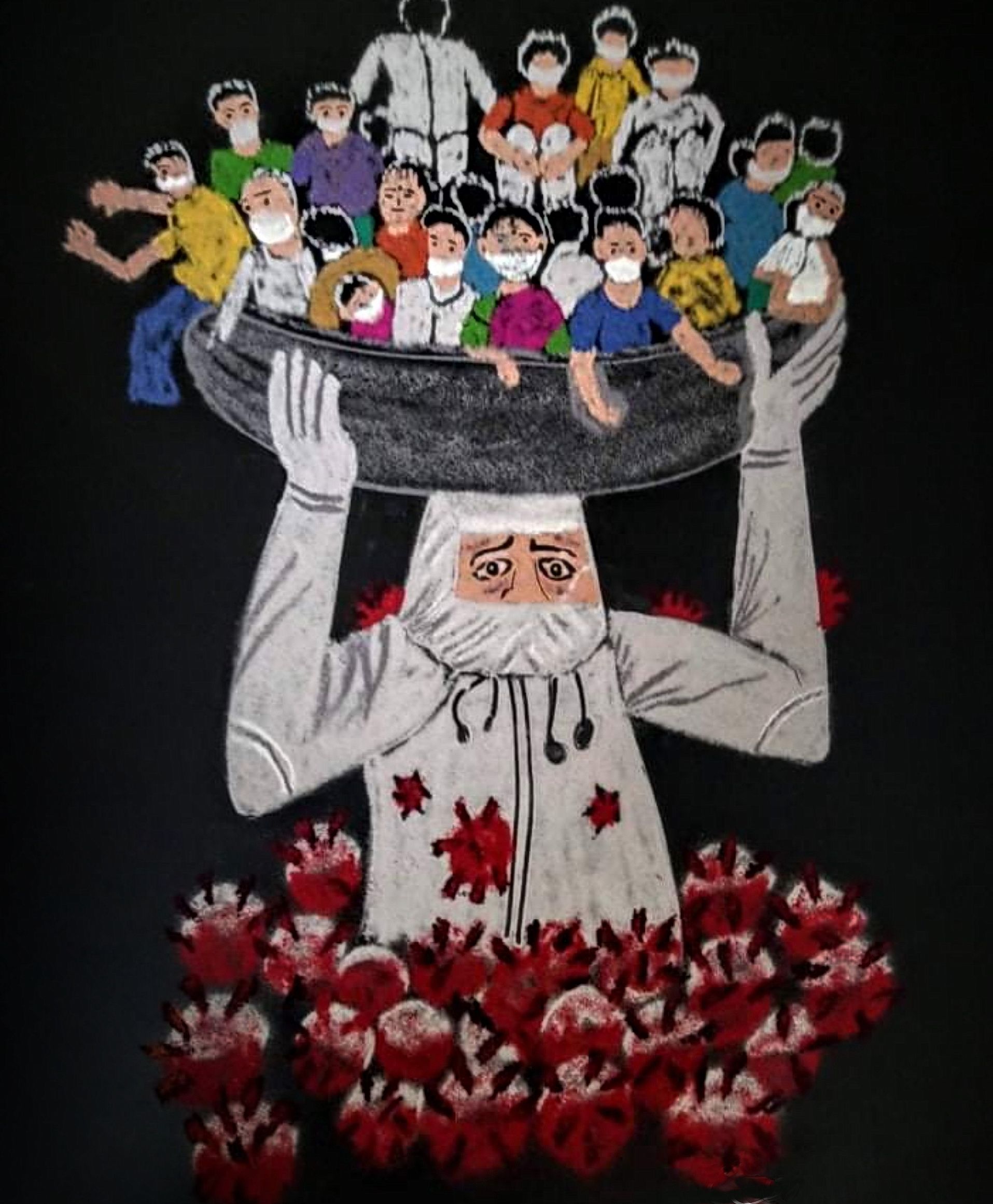
The medical world seen as a body takes the form of Superman either acting or just following the rule and staying at home.
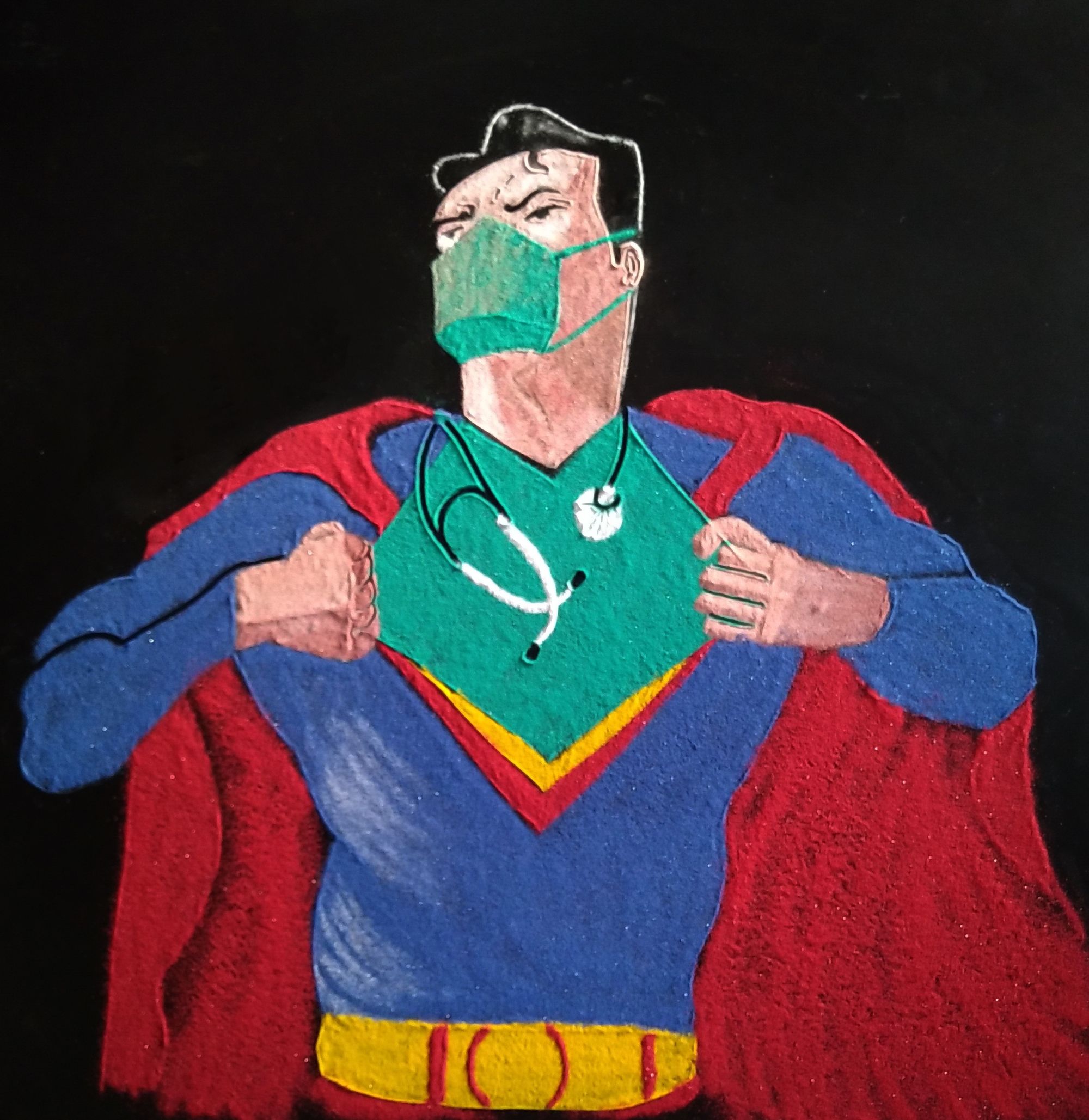
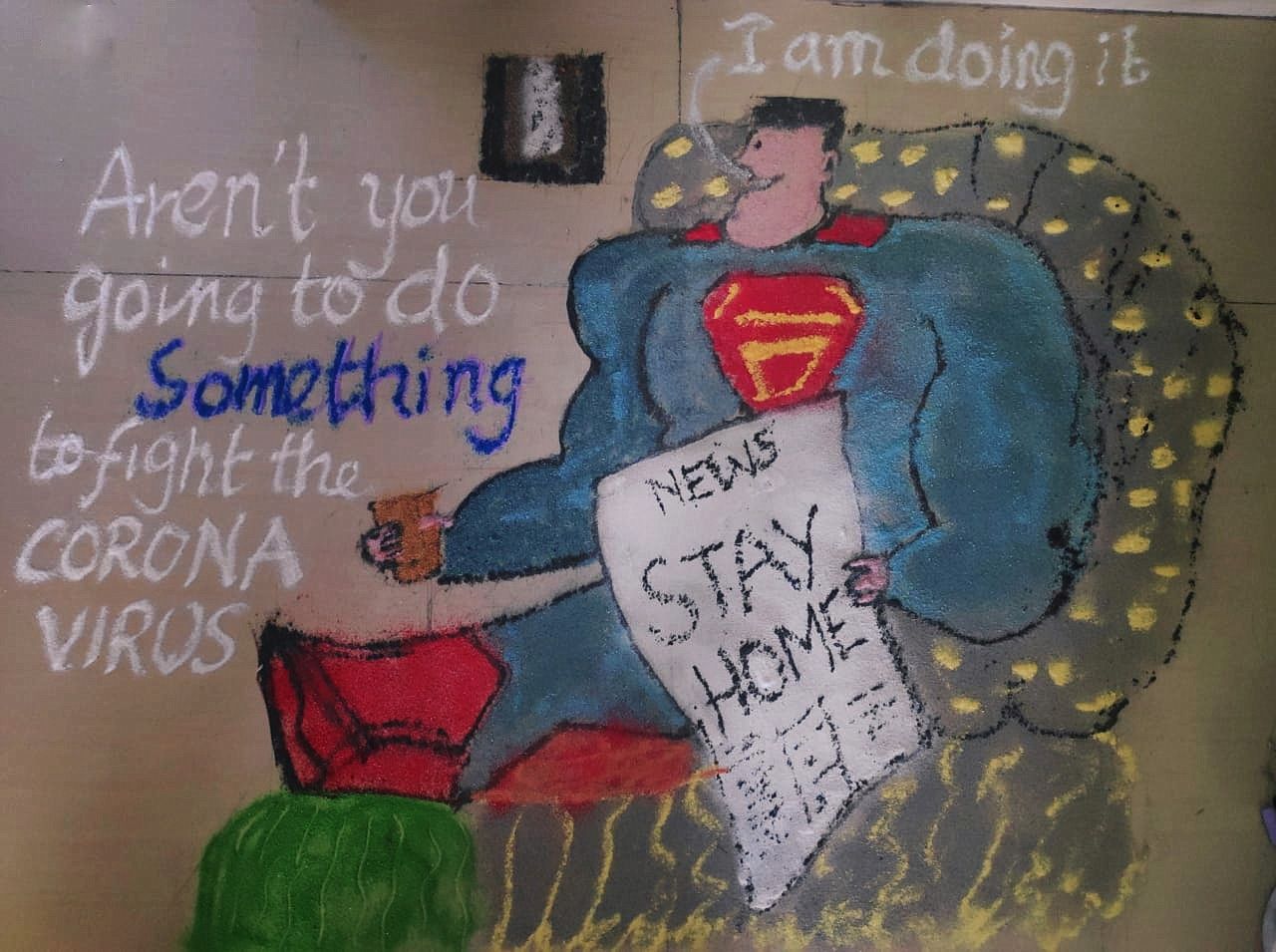
Sometimes it is the god himself that comes to the rescue of humanity and destroys the virus seen as a demon swallowing the world and harassing people.
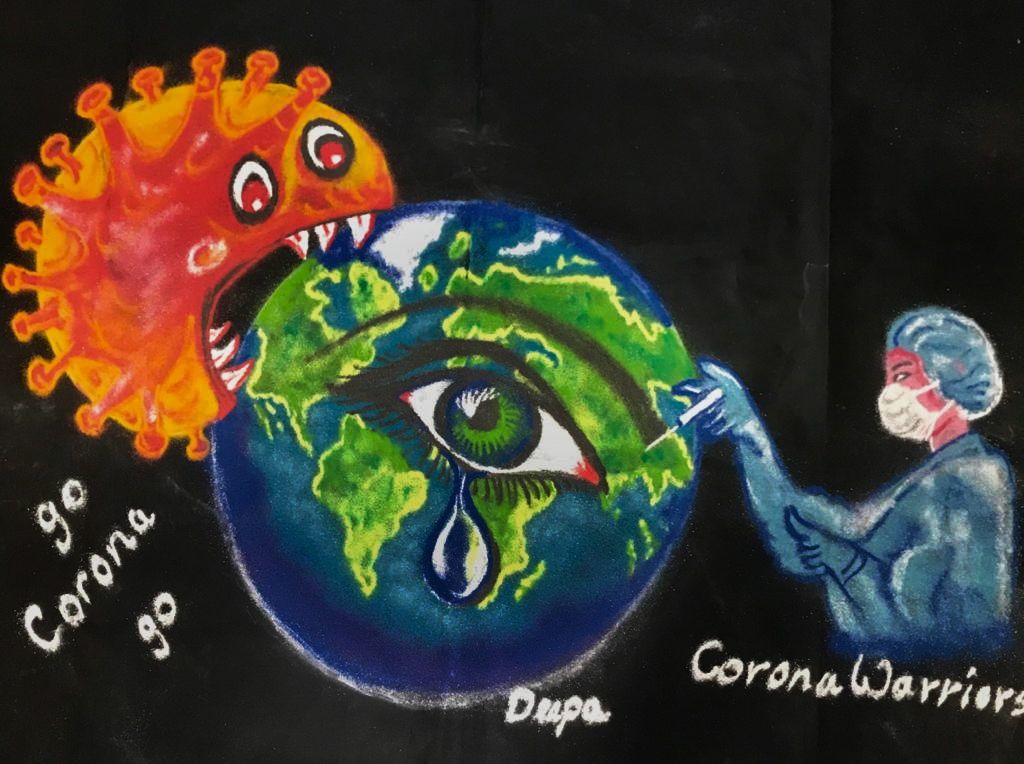
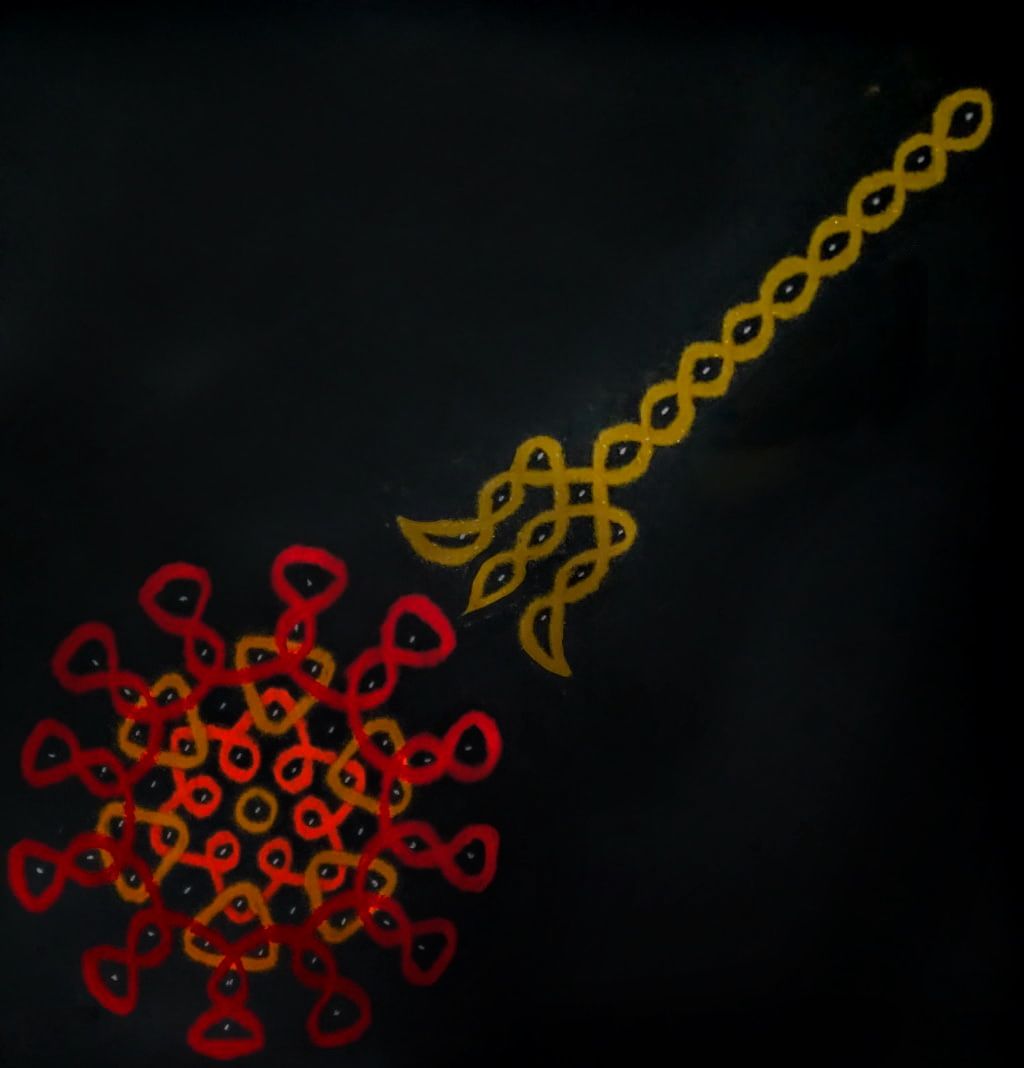
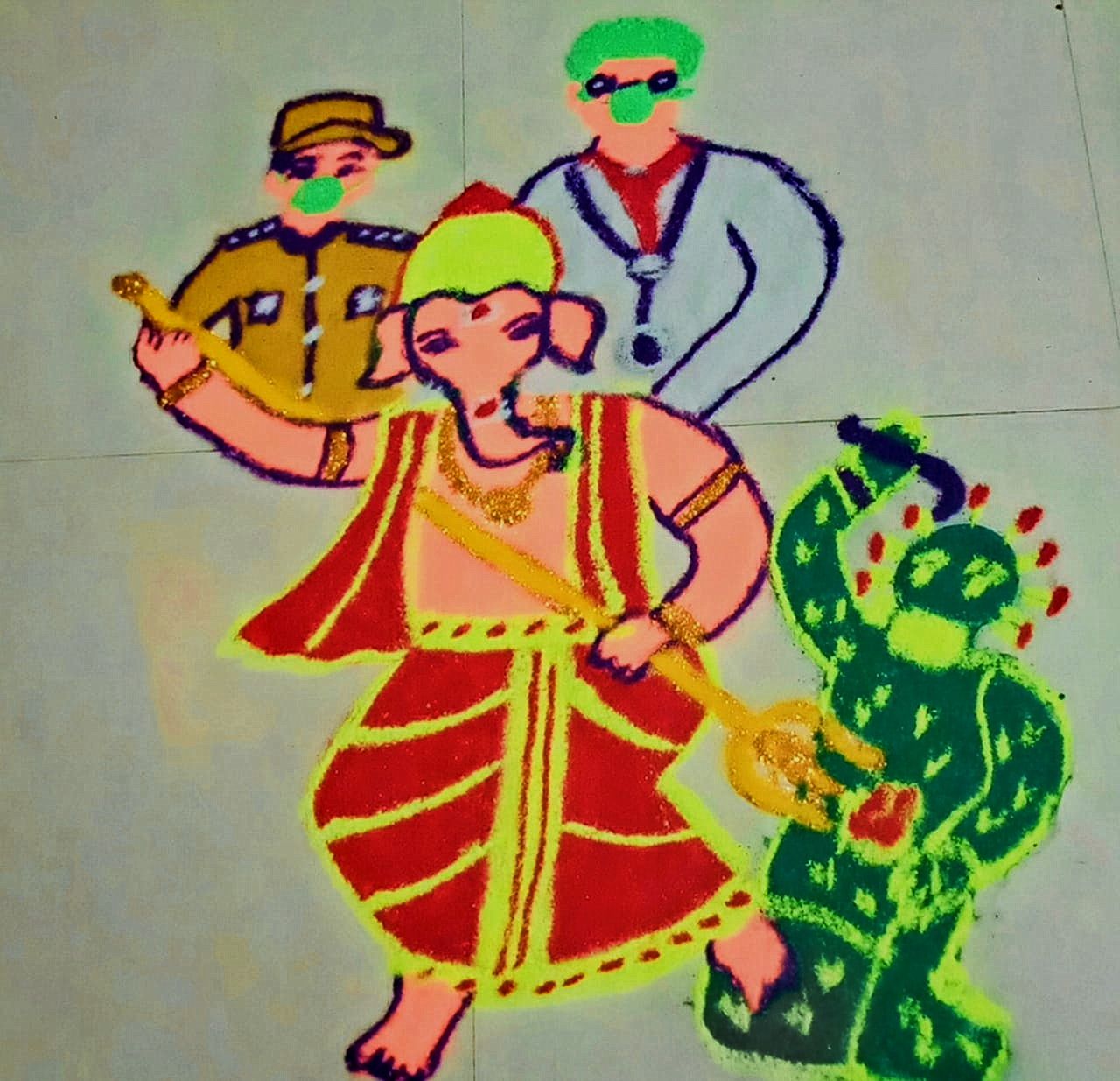
A goddess named Covid amma or Corona Devi.
In India, the tradition of Devi or goddess worship goes back to thousands of years. While some goddesses are embodiments of earthly possessions or qualities we seek, local goddesses such as Mariamman are believed to protect villages and their lands and have always been an important part of the religious landscape of South India. They have been worshipped in many deadly pandemics from time immemorial. They bring rains and cure diseases like cholera, smallpox, and chicken pox. Her counterpart in North India is Shitala “the cold one”; a reference to her ability to cool fevers. Now that the world is grappling with a new disease, some people have been worshipping Corona Devi to ward off the pandemic.
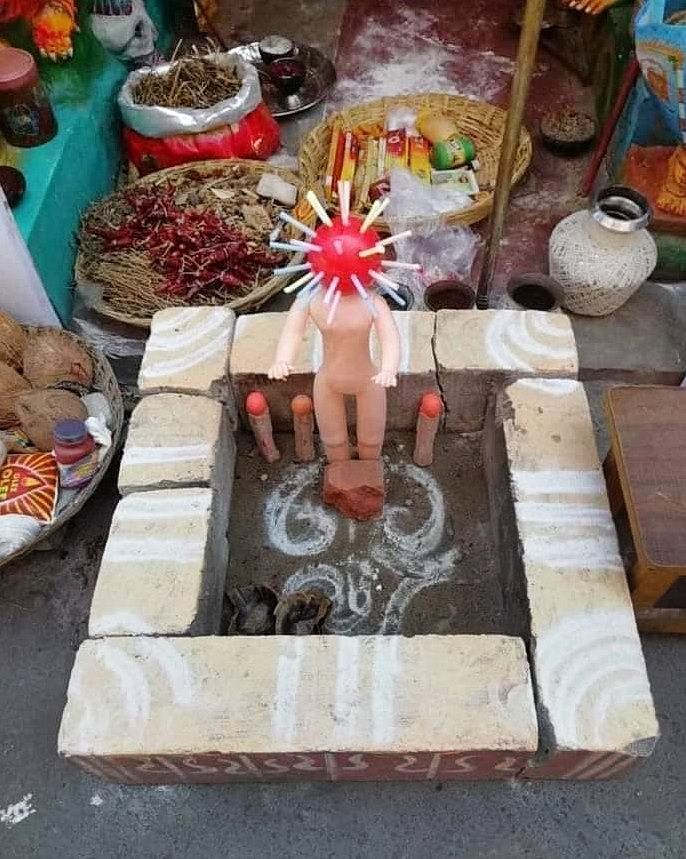
Citizens and police officers band together to raise awareness of the virus.
Creativity in India takes numerous forms; it can be an ingenious repair, the use of waste materials for an innovative fix, an out-of-the-box thinking, or a solution that bends the rules. How many pictures of nicely piled up fruits, vegetables, or objects have I taken during my trips? Everywhere, creativity makes everyday life more beautiful, and whether you are a believer or not, religious practices can also develop unexpected paths and creative manners to attract or inform followers. The same applies to delivering messages to the public during this pandemic. In Chennai, a group of citizens have drawn a rangoli replacing the figure of Yama (the god of death) riding a buffalo by a personified Corona virus warning people to stay at home.
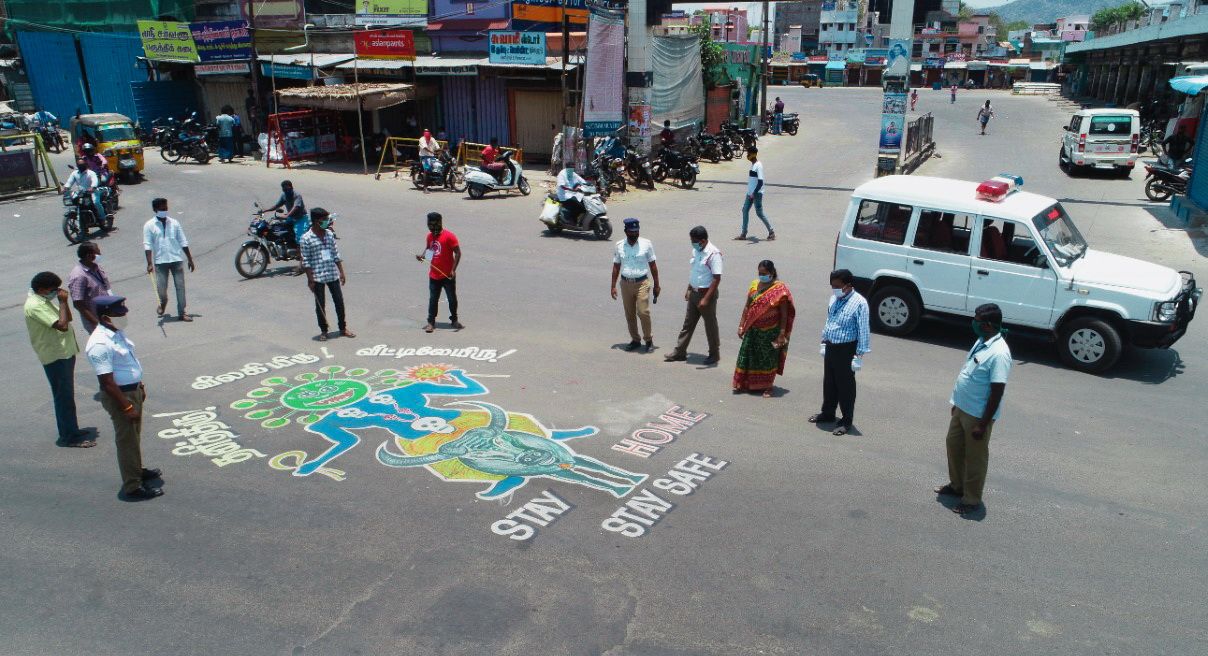
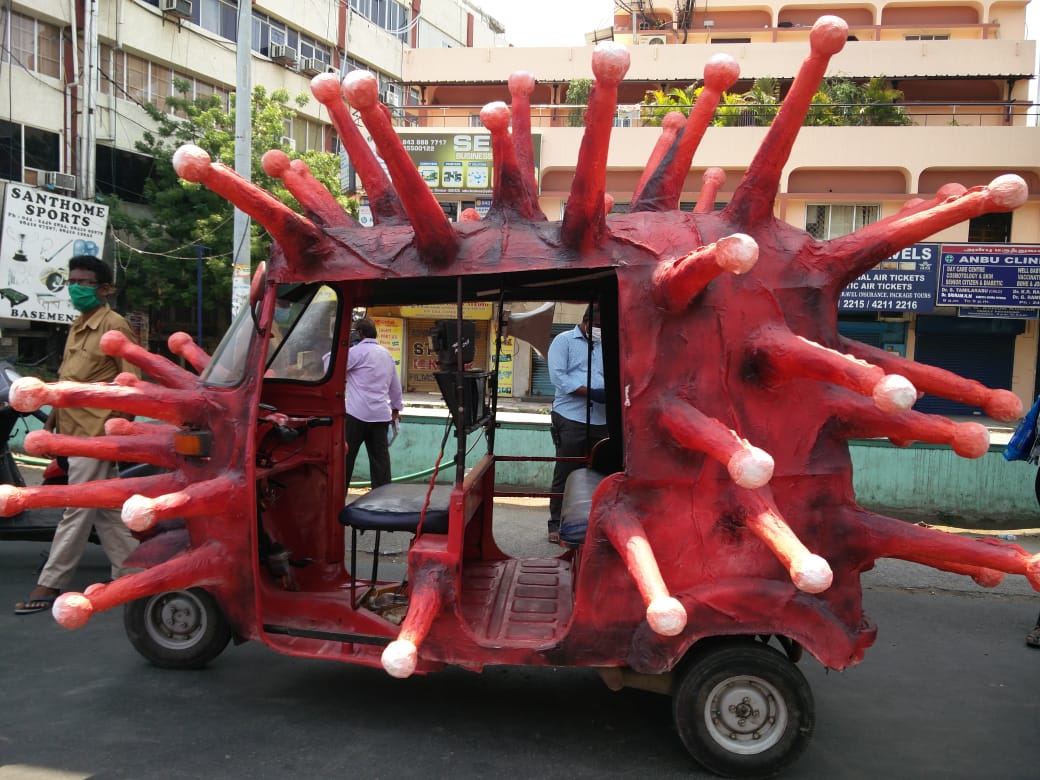
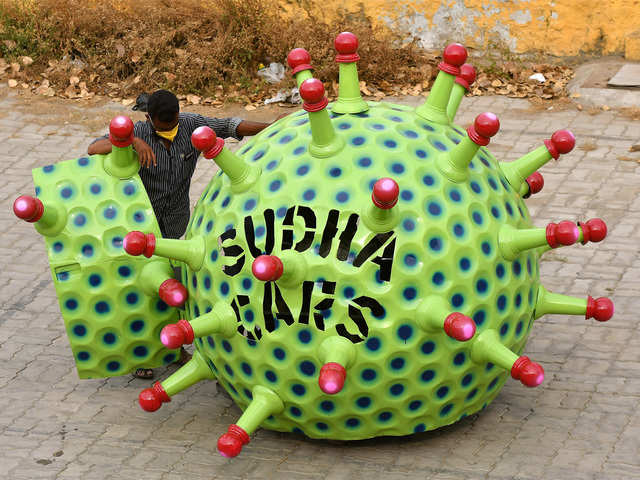
India has a long tradition of street theatre, dance, and visual arts. Puppets, painted narrative scrolls, and dramas with masks are found in many regions and have promoted the circulation of epics and religious texts, and passed on helpful hints to villagers regarding morality, sexual education, health issues, and wisdom. Recently, the Bangalore traffic police has come up with "corona helmets" to raise awareness on the importance of physical distancing and isolation. They stop motorists and appeal to them to stop venturing out unnecessarily. In Kerala, a folk dance promotes hand washing.
